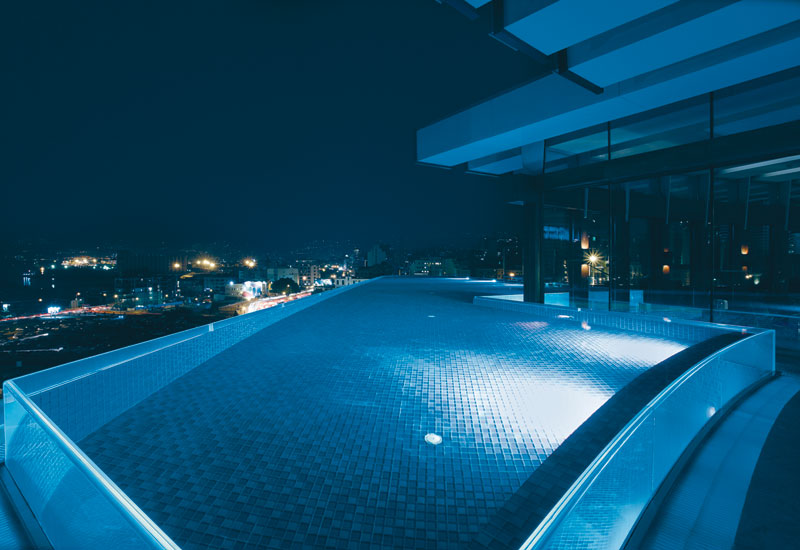 Campbell Gray Hotels' Le Gray opened in 2009 and was the first major injection of new luxury product in the Beirut market for several years.
Campbell Gray Hotels' Le Gray opened in 2009 and was the first major injection of new luxury product in the Beirut market for several years.
Government incentives, the recent political stability and a wealth of natural resources have made Lebanon an increasingly attractive option for hotel investors and operators, reports Joe Mortimer
The recent opening of two luxury hotels in downtown Beirut represents the beginning of a new era for Lebanon’s hospitality industry, which has already risen like a phoenix from the flames of its troubled past.
After the staggering performance figures reported by Beirut’s existing properties in 2008/9, a line-up of new hotels providing some 2000 additional rooms are set to open their doors over the next four years and government incentives are poised to bring new investment pouring into the country.
The signing of the Doha accord on May 21, 2008 marked a turning point for Lebanese stability and, in turn, the tourism industry. Since then, Lebanon’s hospitality industry has easily outperformed regional competitors and indeed every other country on the planet, in terms of year-on-year growth.
Lebanon’s Ministry of Tourism declared 2009 the best year ever for tourist arrivals, with visitor numbers approaching 1.9 million. Official figures show that almost 50% of visitors used hotels and serviced apartments during their stay, which equated to 770,000 hotel stays.
The peace and stability of the country were undoubtedly the catalysts that allowed Lebanon to achieve a large year-on-year occupancy growth of 27.6% in 2009 and a RevPAR increase of 61.6% in the same period, but such substantial growth would never have been possible if it weren’t for the “pent-up demand” for Lebanon as a tourist destination, argues Deloitte and Touche tourism, hospitality and leisure partner Rob O’Hanlon.
“What we saw in 2008 is what we commonly describe as the ‘peace dividend’. As soon as there was tangible evidence of a settlement around the government of Lebanon and stability on the political front, the pent-up demand for visitors to Lebanon was able to commence,” he explains.
“The second factor which is also really important is that from a general Middle East perspective and the Gulf countries in particular, Lebanon was traditionally a favourite destination. The return of peace and stability meant that those folk who would have liked to be able to spend more time in Lebanon were suddenly able to do so again.”

Advertisement
For operators on the ground, the effects of Lebanon’s newfound peace and stability are tangible. According to Rotana president and CEO Selim El Zyr, Rotana’s two existing properties in Beirut — Gefinor Rotana and Hazmieh Rotana — had an average RevPAR growth of 82.9% in 2009.
“The impact [of peace and stability] has had a direct effect on our occupancy and ADR, which increased significantly,” says El Zyr.
“Bookings came in the form of weekend getaways, business meetings, investors seeking local opportunities (especially with the success of the Lebanese banking sector after the worldwide financial crisis), in addition to the boost of the local exhibitions attracting visitors from many countries, which were emerging markets for Lebanon.”
The much anticipated opening of Campbell Gray Hotels’ Le Gray in late 2009, marked the first major injection of new luxury product into the Beirut market for several years and the subsequent opening of the Four Seasons Hotel Beirut in January this year marked the end of a decade-long construction process that was continuously disrupted by a variety of political turmoil, civil unrest and the short but destructive war with Israel during 2006.
“The overall positive atmosphere in Lebanon has given many investors the green light to go ahead with their projects and one of those was the Four Seasons Hotel Beirut,” says general manager Stefan Simkovics.
“We are in the right city at the right time. There is high demand on the city from both the leisure and business travellers, which is great to see.”
The momentum looks set to continue; other hotels under construction in the vicinity of the Four Seasons include the Grand Hyatt Beirut and the Hilton Beirut; Kempinski is set to open two new properties by 2013, one in Beirut and one on Mount Lebanon; Rotana is set to open the Soldiere Arjaan by Rotana in 2012; and InterContinental Hotels Group (IHG) recently signed an agreement to run a 121-room Staybridge Suites property in Beirut’s Verdun Street.
A handful of, as yet, unbranded properties are also in the pipeline, including the Grand Theatre Boutique Hotel, Boutique Hotel Mina el Hosn, Jiyeh Marina Resort, in the city of Jiyeh, a Royal Hotels & Resorts property, and a hotel in The Landmark; a towering mixed-use development in the heart of Beirut.
Meanwhile, IHG’s Le Vendome is poised for an expansion that will see 34 rooms added by 2012, while boutique hotel The Albergo will receive 22 more rooms by the same year.
Rafik Hariri International Airport also has major expansion plans, increasing its annual capacity from six million passengers to 16 million, catering to growing demand from the Middle East and Europe.









 Search our database of more than 2,700 industry companies
Search our database of more than 2,700 industry companies









